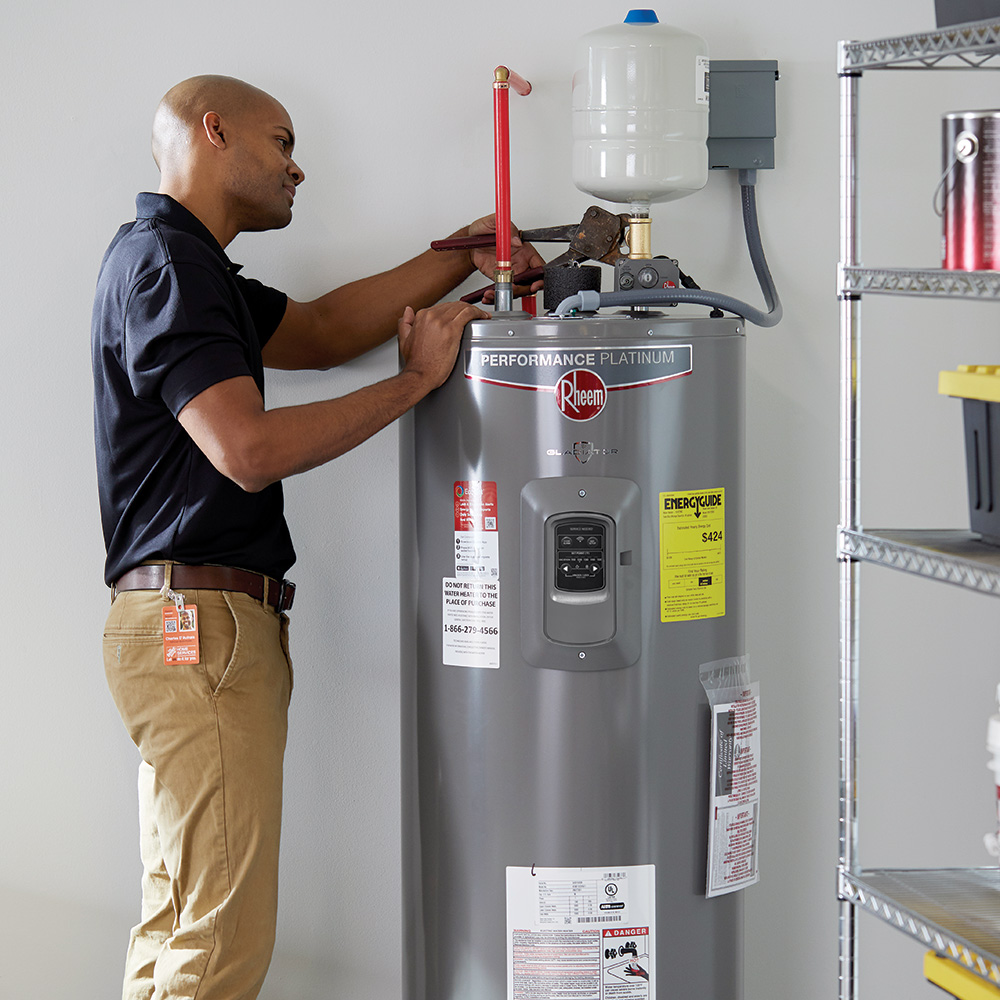Dealing With Common Heater Malfunctions
Dealing With Common Heater Malfunctions
Blog Article
In this article down the page you can discover additional quality answers when it comes to Water Heaters Problems.

Think of starting your day without your routine hot shower. That already establishes an inadequate tone for the remainder of your day.
Every house needs a reliable water heater, yet just a few understand how to take care of one. One simple way to maintain your water heater in top form is to check for mistakes on a regular basis as well as repair them as soon as they show up.
Keep in mind to turn off your hot water heater before smelling about for faults. These are the hot water heater faults you are more than likely to experience.
Water also hot or also chilly
Every hot water heater has a thermostat that establishes how warm the water obtains. If the water entering your house is too warm regardless of establishing a convenient optimum temperature level, your thermostat might be damaged.
On the other hand, also cold water might be because of a stopped working thermostat, a damaged circuit, or improper gas flow. As an example, if you use a gas water heater with a broken pilot burner, you would get cold water, even if the thermostat remains in excellent problem. For electric heaters, a blown fuse might be the wrongdoer.
Inadequate warm water
Hot water heater come in lots of sizes, depending on your hot water needs. If you lack warm water before everyone has actually had a bathroom, your water heater is as well small for your family size. You need to think about installing a larger hot water heater tank or going with a tankless hot water heater, which takes up less area and also is more resilient.
Odd noises
There go to the very least 5 sort of sounds you can hear from a water heater, but one of the most usual analysis is that it's time for the water heater to retire.
First of all, you should know with the normal sounds a water heater makes. An electric heating system might sound different from a gas-powered one.
Standing out or banging audios usually mean there is a slab of sediment in your containers, and it's time to cleanse it out. On the other hand, whistling or hissing noises may simply be your shutoffs letting some pressure off.
Water leakages
Leakages can originate from pipes, water connections, valves, or in the worst-case scenario, the storage tank itself. With time, water will rust the container, and locate its way out. If this takes place, you need to change your water heater as soon as possible.
Nevertheless, before your modification your entire container, make sure that all pipelines are in place and that each shutoff works completely. If you still need assistance recognizing a leakage, call your plumber.
Rust-colored water
Rust-colored water implies one of your water heater elements is rusted. Maybe the anode pole, or the container itself. Your plumber will be able to identify which it is.
Lukewarm water
Despite exactly how high you set the thermostat, you will not obtain any kind of warm water out of a heater well past its prime. A water heater's performance might decrease with time.
You will also get lukewarm water if your pipes have a cross link. This indicates that when you turn on a tap, warm water from the heater flows in along with routine, cold water. A cross connection is very easy to spot. If your hot water taps still run after closing the water heater shutoffs, you have a cross connection.
Discoloured Water
Corrosion is a major source of dirty or discoloured water. Rust within the water storage tank or a falling short anode pole could cause this discolouration. The anode rod shields the container from rusting on the inside and ought to be inspected yearly. Without a pole or an effectively operating anode pole, the warm water promptly wears away inside the container. Call a specialist hot water heater professional to determine if changing the anode rod will fix the trouble; otherwise, replace your hot water heater.
Verdict
Ideally, your hot water heater can last ten years prior to you require a change. Nevertheless, after the 10-year mark, you may experience any one of these mistakes extra frequently. At this moment, you must add a new water heater to your budget plan.
How To Troubleshoot 3 Common Water Heater Problems in Twin Cities
The Water Heater Is Leaking
A leaky cold water inlet valve A loose pipe fitting A leaky temperature and pressure relief valve A corroded anode rod A cracked tank Turn Off Your Water Heater:
Shut off your gas water heater by turning the gas valve on the unit to the “OFF” position. Shut off your electric water by switching its power off at your electrical panel. Look for a two-pole breaker labeled “water heater” and turn it to the “OFF” position. Move the ball valve connected to the water heater to be perpendicular to the piping at a 90° angle. Look for the Leak:
Depending on whether the water is coming from the tank's top or bottom, you’ll want to look for the leak in different locations.
If the leak comes from the top of the tank, carefully look for water escaping from the cold water inlet valve or loose pipe fittings. Rusted hot and cold water valves can have loose connections with the tank, with water leaking out of them.
https://mspplumbingheatingair.com/blog/how-to-troubleshoot-3-common-water-heater-problems
Do you appreciate reading about Common Problems with Tank Water Heaters? Leave a remark down the page. We would be interested to hear your responses about this piece. In hopes that you come back again later on. Sharing is caring. One never knows, you will be doing someone a favor. I cherish reading our article about Water Heaters Problems.
This Post Report this page